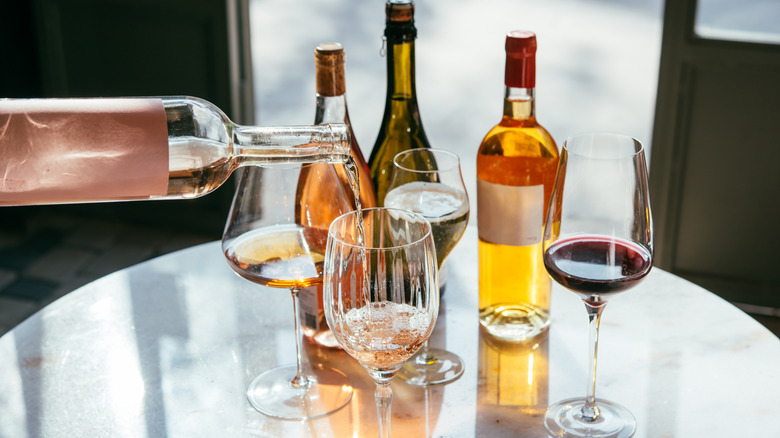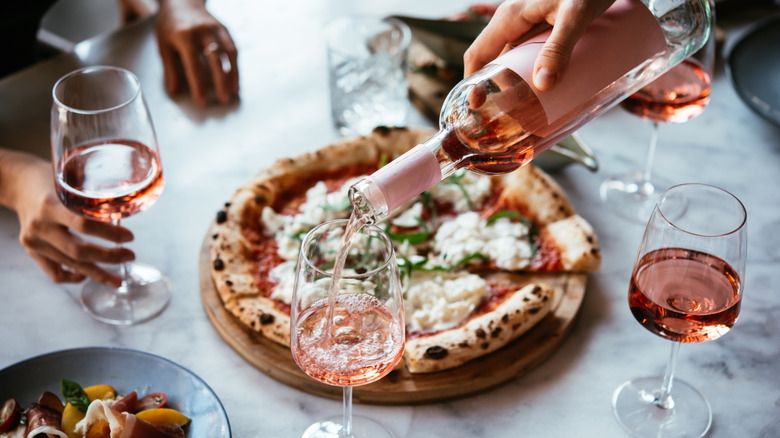What, Exactly, Does It Mean If A Restaurant Is BYOB?
Have you ever heard that a restaurant is "BYOB," and not known exactly what that meant? Even if you know that BYOB refers to "bring your own bottle," you still may not know what that means when it pertains to a restaurant.
Essentially, if a restaurant is BYOB-friendly, it means you can bring your own bottle of wine to drink with dinner — instead of having to purchase a glass or a bottle from the restaurant itself. The policy may refer to wine only, or it may also include beer or hard liquor, and it typically depends on the restaurant. Overall, it also sounds like a pretty good deal, considering that you can get a bottle of wine for just about $5 at Trader Joe's.
That said, while this can definitely work out to be cheaper overall, it's also important to note that a BYOB restaurant may have a corkage fee. This refers to the fee that a restaurant might charge in exchange for you bringing and drinking your own bottle, and the main reason for a fee is that restaurants can still make some money even if you're not purchasing alcohol. The corkage fee will vary, and can be anywhere from $15 to nearly $100 if it's more upscale — if the restaurant even has a fee to begin with. To find out the exact details, all you need to do is call and ask ahead of time. At Olive Garden, for example, the corkage fee is typically just $7, which means you can save a ton by simply bringing your own bottle.
BYOB etiquette to keep in mind
Not only is it a good idea to call the restaurant to inquire about its corkage fee, but it's also a good idea to call ahead anyway and give them a heads up that you'll be bringing your own. Similarly, this is also something you should practice if you ever want to bring your own birthday cake to a restaurant.
Additionally, we all know that you should always tip at a restaurant — even if tipping workers has complicated origins. In the same vein, if you bring your own bottle to a restaurant, it's still considered good etiquette to tip especially generously. What's "generous"? At least 20%, although some experts argue that you should tip 20% of what your bill would have been if you had purchased a bottle of wine in-house.
Finally, you'll also want to be respectful to the restaurant you're bringing your own bottle of wine into. This may mean being thoughtful about bringing a wine that pairs well with the cuisine, or checking out the restaurant's wine list to make sure that you don't bring a bottle they already offer. It could also mean not bringing a bottom-shelf bottle of wine into an upscale restaurant. While a $6 bottle from Trader Joe's may be just fine at, say, Olive Garden, it may not be as well-accepted at a fancier place.

